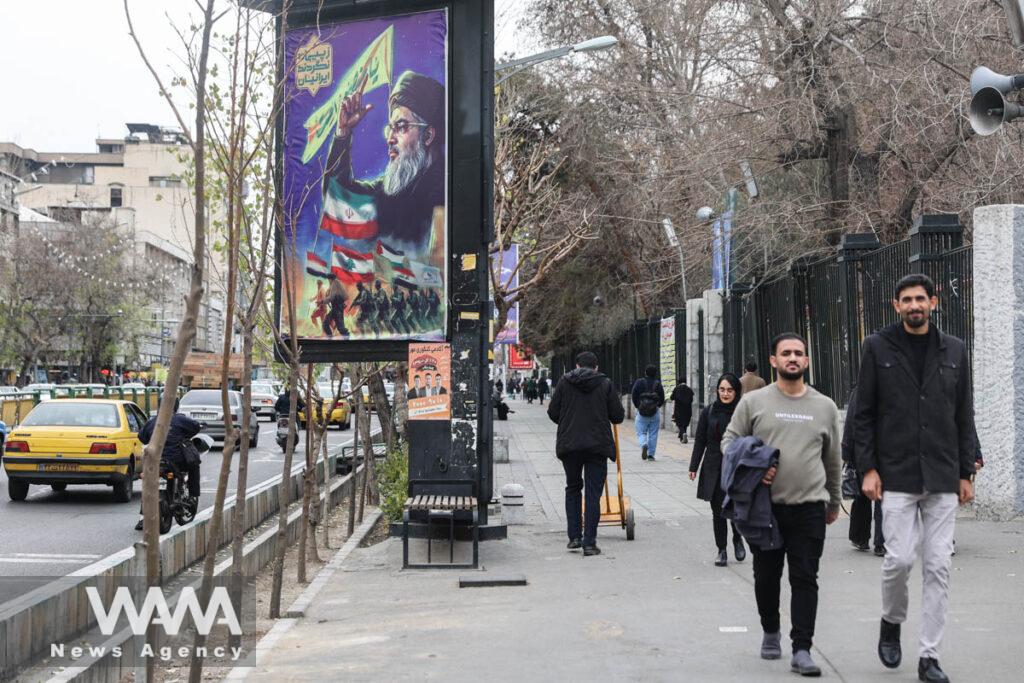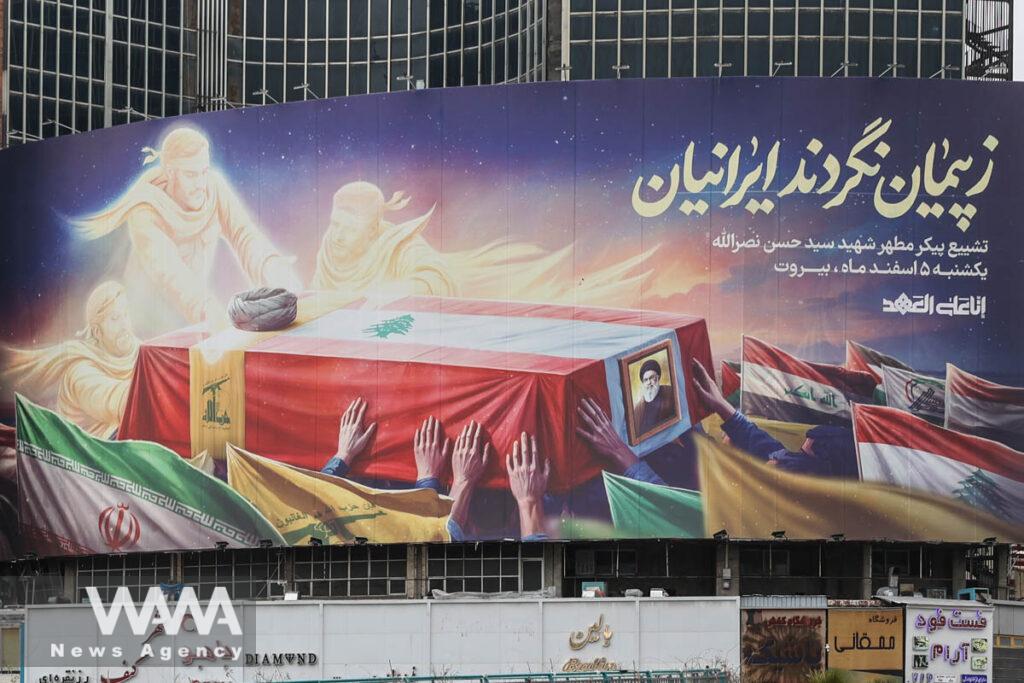Nasrallah’s Funeral: Legacy and Iran’s Call for Resistance
WANA (Feb 22) – Nearly five months after the shocking assassination of Hassan Nasrallah, the leader of Hezbollah, Lebanon is preparing for a historic funeral—one that is expected to be more than just a farewell. For many, it is a renewed call to resistance.
As thousands prepare to gather in Beirut’s Camille Chamoun Sports City Stadium on February 23, 2025, Iran—Nasrallah’s closest ally—continues to voice its fury over his killing while its people express their grief and commitment to his cause.
The Assassination That Shook the Region
On September 27, 2024, an Israeli airstrike struck Hezbollah’s headquarters in Beirut’s Dahiyeh district, killing Nasrallah in an attack that sent shockwaves across the Middle East.
The targeted killing was a severe escalation in the shadow war between Israel and Iran’s regional allies, sparking immediate fears of a more significant conflict.
But instead of rushing to bury their fallen leader, Hezbollah made a highly unusual decision—they delayed his public Funeral for nearly five months, citing security threats and the risk of another Israeli strike.
As the Funeral finally approaches, many in Iran see it as more than just a mourning ceremony—it is a moment of defiance.

Iranians walk next to a billboard with a picture of late Lebanon’s Hezbollah leader Sayyed Hassan Nasrallah on a street in Tehran, Iran, February 22, 2025. Majid Asgaripour/WANA (West Asia News Agency)
Iran’s Reaction: “His Martyrdom Will Strengthen Us”
Iran was among the first to react with unwavering condemnation, seeing Nasrallah’s death as an attack on the entire axis of resistance.
Supreme Leader Ayatollah Ali Khamenei declared five days of national mourning, stating: “The Islamic world has lost a noble figure… However, the blessings from his decades of jihad will never be lost.”
Meanwhile, President Masoud Pezeshkian called the assassination “a cowardly crime” and blamed both Israel and the United States, vowing that the resistance would only grow stronger.
Foreign Minister Abbas Araqchi took a more direct stance, saying: “Assassinating resistance leaders only reconfirms the unchanging fact that the Zionist regime will never take root in our region.”
Also, It has been announced that a large delegation of officials and cultural and revolutionary figures, headed by Mohammad Bagher Ghalibaf, Head of Iran’s Parliament, will depart for Beirut tomorrow and attend the Funeral in person tomorrow.
Beyond the official responses, ordinary Iranians have also voiced their emotions—some with sorrow, others with a renewed sense of duty.
An Iranian citizen in Tehran said to WANA: “When I heard about his death, it was really sad for me. It was miserable because he was one of the great leaders of the resistance front.”
Another expressed a stronger stance, hinting at the need for direct action:
“For defending the blood of the martyrs we’ve lost, I think we deserve to enter the battlefield ourselves. But this must be done with wisdom—we cannot act recklessly.”
For many, Nasrallah’s Funeral is not just a goodbye—it is a pledge to continue his mission.“These ceremonies renew our vows with his path. Continuing is more important than anything because it is the same as honoring the martyrs of the Holy Defense and the martyrs of the path of freedom and resistance.”

A billboard with a picture of late Lebanon’s Hezbollah leader Sayyed Hassan Nasrallah is seen in a street in Tehran, Iran, February 22, 2025. Majid Asgaripour/WANA (West Asia News Agency)
Why Was Seyed Hassan Nasrallah’s Funeral Not Held in Iran?
Despite multiple requests for Seyed Hassan NNasrallah’sfuneral procession to take place in Iran, this was ruled out due to jurisprudential and religious considerations requiring the swift burial of the body after a temporary interment.
” If it was possible to have the Funeral here (in Iran), I think it would have been quite welcomed and appreciated (people would have attended a lot ).” a sentiment that an Iranian citizen expressed to WANA reporters
At the same time, U.S. obstructions and the cancellation of flights from Iran prevented large numbers of Iranians and some Iranian officials from attending the Funeral in Lebanon.
Although Iranian President Masoud Pezeshkian had expressed readiness to attend the ceremony, the Lebanese government did not extend an invitation to him.
Meanwhile, Mohammad Bagher Ghalibaf’s presence was arranged following his own efforts and an invitation from Nabih Berri, the Speaker of the Lebanese Parliament.
What Happens Next?
As Hezbollah prepares for the mass Funeral on February 23, tensions remain high. Security is at its maximum level, with Hezbollah deploying thousands of fighters to prevent any further attacks.
The question now is: Will this moment become a turning point? For Iran and its allies, Nasrallah’s death has not silenced the resistance—it has amplified it.
His Funeral will serve as both a farewell and a warning—one that the struggle he led is far from over.












